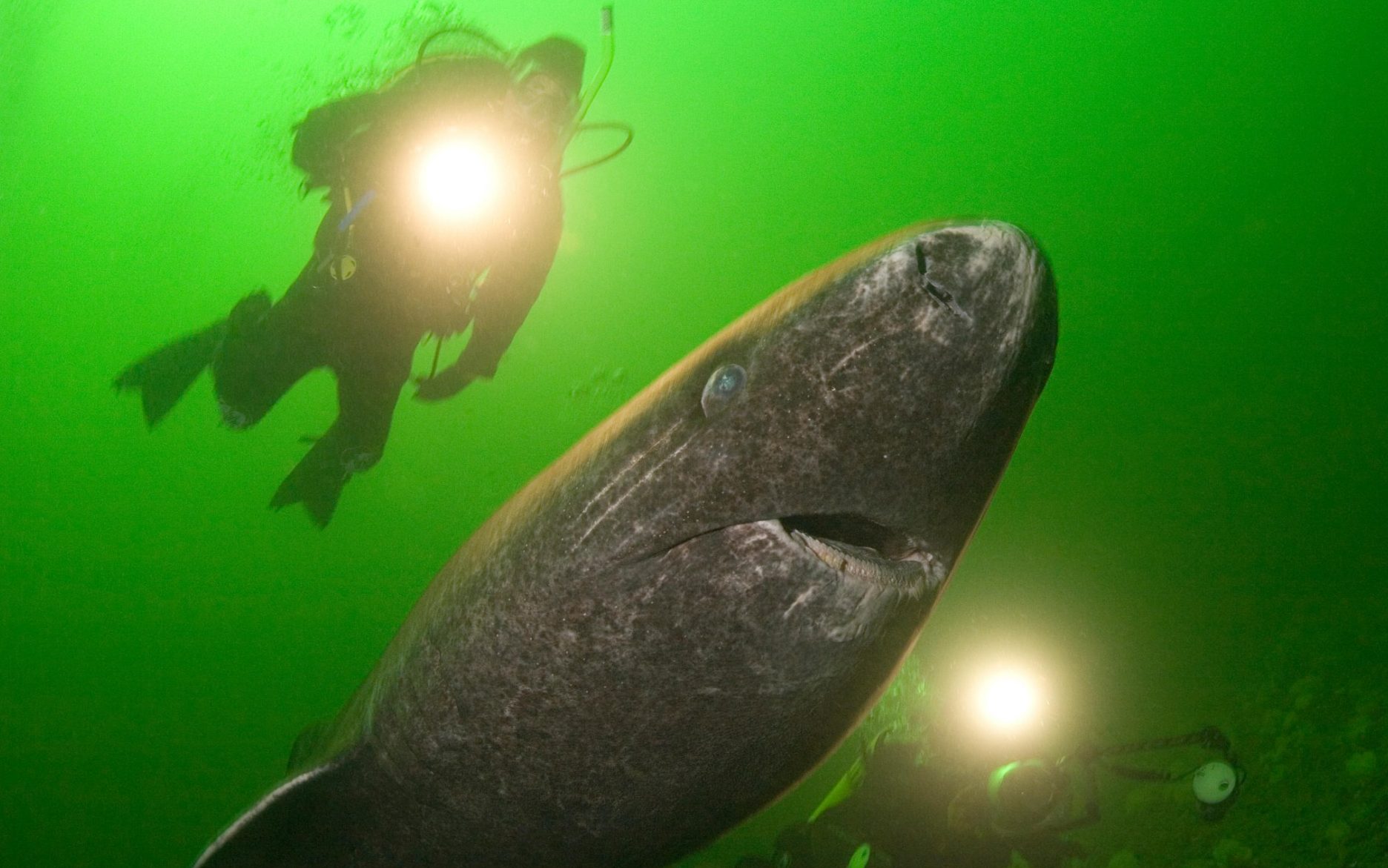
RARE SHARK THAT LIVES FOR 500 YEARS COULD HOLD SECRET TO INCREASING HUMAN LIFESPAN
The metabolism of a shark species which can live for 500 years could help scientists treat heart disease and increase people’s lifespan, scientists hope.
Greenland sharks can live for centuries in the frigid polar ocean and take more than 100 years to become adults, but are elusive and little is known about the species, including how they live so long.
Experimental research shows that muscle metabolic activity may be an important factor in the incredible longevity of the Greenland shark, the world’s longest-living vertebrate species.
The findings may have applications for conservation of the vulnerable species against climate change and could also improve human cardiovascular health, say scientists.
“We want to understand what adaptations they have that allow them to live so long,” said lead researcher Ewan Camplisson, a PhD student at the University of Manchester.
It was previously thought that their long lifespan was due to the sharks’ cold environment and minimal movement, but analysis of muscle samples now disputes this.
Research presented at the Society for Experimental Biology annual conference in Prague from Mr Camplisson shows that the metabolic activity of the species does not change as it ages, unlike other species.
“Most species show variation in their metabolism when they age,” he said.
“The results support our hypothesis that the Greenland shark does not show the same traditional signs of ageing as other animals.”
The scientists conducted enzyme tests on preserved muscle tissue samples from Greenland sharks and measured the metabolic activity of the enzymes.
The team found no significant variation in muscle metabolic activity across different ages, suggesting that the metabolism does not appear to decrease over time and may play a key role in their longevity.
Data show that the Greenland shark’s metabolic enzymes were “significantly” more active at higher temperatures which is evidence they are not specifically adapted for polar conditions.
The researchers now plan to test more enzymes and tissue types to gain an even deeper understanding of the shark’s metabolic activity.
Mr Camplisson said: “My ultimate goal is to protect the species and the best way to do this is to better understand them.”
He is also interested in the possible applications of the findings for the understanding of human heart disease.
Mr Camplisson added: “By studying the Greenland shark and its heart, we may be able to better understand our own cardiovascular health.
“These are issues that become progressively more common and severe with increasing age.”
2024-07-03T17:34:43Z dg43tfdfdgfd











